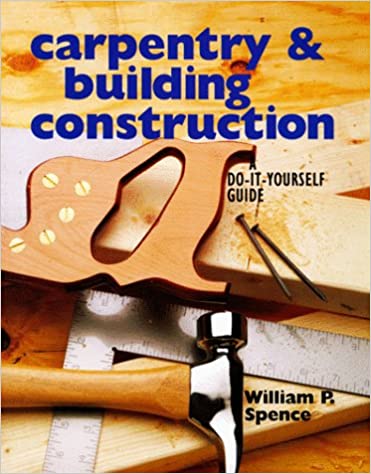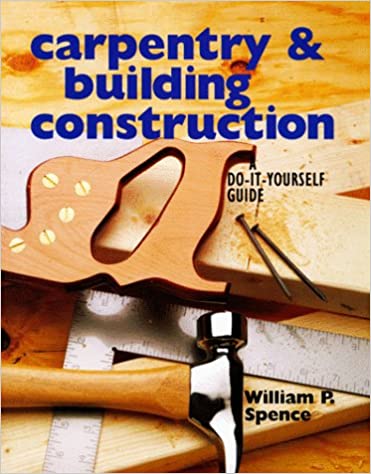Carpentry & Building Construction is a comprehensive collection of information for do-it-yourselfers. It serves not only as an excellent introduction for novices to various projects, but also as a valuable reference guide for more experienced carpenters. In its most introductory moments, Carpentry & Building Construction covers topics such as the proper use of ladders, including an explanation that extension ladders must extend 36 inches above the edge of a roof for safe access. Those with advanced skills will find more useful information in sections devoted to topics such as framing flat, shed, gambrel, and mansard roofs. Regardless of skill level, however, readers will find clear writing and explanations made even more useful with over 2,000 photos, diagrams, and detailed drawings. Chapters are devoted to a variety of topics, including "Safety, Codes & Drawings," "Site & Foundation Preparation," "Floor, Wall & Ceiling Framing," "Framing the Roof & Dormers," "Floors & Stairs," "Insulation & Interior Wall Finish," "Cabinet Construction," and more. Carpentry & Building Construction also serves as a veritable cheat sheet for reading plans, thanks in part to the inclusion of a chart on the symbols used in architectural drawings to represent materials, doors, windows, piping, and other designations. There are also various conversion tables, including linear factors for converting metric to customary, and for figuring area and volume.
The book's usefulness can perhaps be best explained in one project. Take, for example, the installation of a door--do this job correctly and you will enjoy the benefits every day. Make a mistake, however, and the door might not latch, it might be difficult to open, and your house might feel like someone left the barn door open. Carpentry & Building Construction delves into a variety of relevant topics to ensure a quality job on interior and exterior doors, including determining the swing of the door before installing the frame, checking the rough opening, setting a door frame in a solid masonry wall, and the actual installation of pocket doors, bifold doors, sliding doors, pre-hung doors, hinges, door casings, locksets, door stops, weather-stripping, and more. Coverage is even devoted to garage doors.
In the end, it all lives up to author William P. Spence's promise in the introduction that this book will prove useful to homeowners as well as apprentice and experienced carpenters. --John Russell


